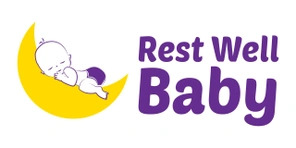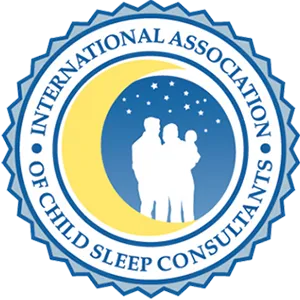Blog

Baby Sleep Cues
Decoding Your Baby's Cues: When Are They Tired vs. Overstimulated?
As a pediatric sleep coach, one of the most frequent challenges parents share with me is the confusion around their baby's signals. "Are they tired, or are they just fussy?" is a question I hear almost daily. Babies communicate through a complex dance of cries, movements, and expressions, and distinguishing between genuine tired cues and signs of overstimulation can feel like trying to solve a riddle.
Understanding the difference is crucial because the solution for each is different. Putting an overtired or overstimulated baby down for sleep is often a recipe for a battle, leading to short naps, frequent night wakings, and general frustration for everyone involved.
Let's break down how to decode these often-similar-looking signals:
The Classic "Tired" Cues:
True tired cues are your baby's way of telling you their internal battery is running low and they need to recharge. These cues tend to emerge gradually and become more pronounced as wake windows extend. Look for:
Yawning: This is often the clearest sign! It's a physiological response to fatigue.
Eye Rubbing: Little fists rubbing eyes or ears.
Looking Away/Drowsiness: Less engagement with their surroundings, a "thousand-yard stare," or eyelids drooping.
Red Eyebrows or Eyes: A subtle flush around the brows or eyes can indicate fatigue.
Decreased Activity/Slowing Down: Less babbling, less vigorous kicking or arm movements, becoming quieter.
Fussiness that Responds to Calm: They might be fussy, but if you calm the environment (dim lights, quiet voice), they start to relax and seem ready for sleep.
When you see these cues, it's your window of opportunity to initiate the calming bedtime or naptime routine. Act swiftly but gently to catch that sweet spot before overtiredness sets in.
The Sneaky "Overstimulated" Cues:
Overstimulation happens when a baby's developing nervous system is bombarded with too much input – too many sounds, too many sights, too much handling, or too much activity. Their way of coping with this overload can often mimic tired cues, but with an important distinction: they're not necessarily sleepy, they're overwhelmed (or overtired).
Fussiness/Irritability (escalating quickly): This isn't the sleepy kind of fuss. It often builds rapidly into crying, arching, or frantic movements.
Frantic Movements/Thrashing: Instead of slowing down, they might become jerky, flail their arms and legs, or stiffen their body.
Arching Back/Pulling Away: They might physically try to escape a stimulating situation (e.g., arching away from a toy, pushing off your lap).
Unfocused Gaze/Hyper-alertness: While tired babies look away drowsily, overstimulated babies might have a wide-eyed, unfocused stare, or seem overly alert but unable to process new information.
Short, Jerky Naps (if they do fall asleep): An overstimulated baby might eventually pass out from sheer exhaustion, but their sleep will likely be restless and brief.
The Key Difference & What to Do:
The biggest differentiator is the response to calming. A tired baby will often melt into you and calm down as you begin their sleep routine. An overstimulated or overtired baby, however, might become more agitated or frantic when you try to rock or soothe them, or they may struggle even more against being held.
If you suspect overstimulation, the immediate goal isn't sleep, it's decompression. Take your baby to a quiet, dimly lit room. Hold them calmly, limit talking, and reduce all sensory input. Let them decompress for 10-15 minutes. Once they've settled, then look for those genuine tired cues. Often, after off-loading the sensory input, the true tired cues will emerge, and you can proceed with your sleep routine.
Learning your baby's unique language takes time and observation. Keep a little mental note (or even a physical one!) of what precedes certain behaviors. With practice, you'll become a master at decoding their cues, leading to happier babies and more rested families.
If your family is facing sleep challenges, please feel free to reach out to book your 30 minute Sweet Dreams Starter call to learn how I can help your family get the gift of sleep.
Yours in sleep,
Tracie / Rest Well Baby
www.restwellbaby.com
Tracie Kesatie is a Certified Gentle Sleep Coach dedicated to helping families with little ones 0-10 years of age achieve a restful night's sleep.
Disclaimer: This article provides general information and is not intended as medical advice. Always consult with your pediatrician for any concerns about your child's health.
Blog





